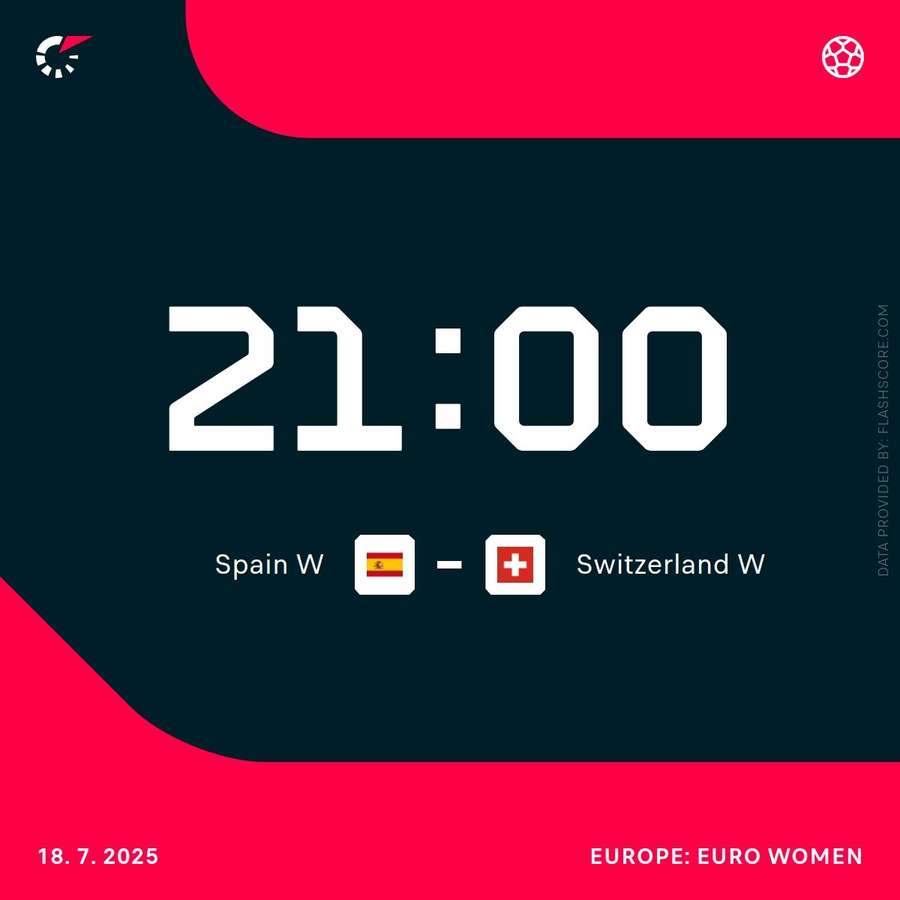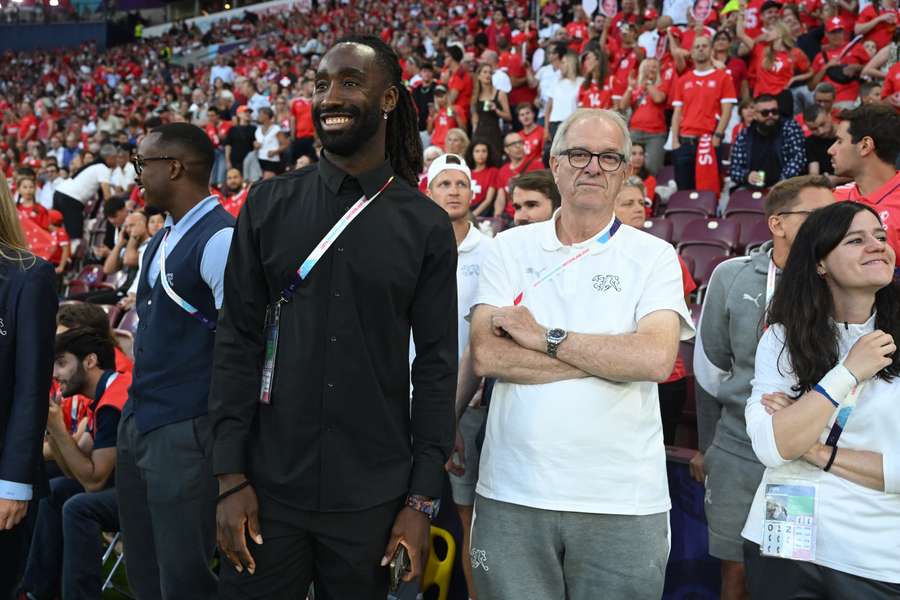In an interview with Flashscore, he discusses the evolution of women's football in Switzerland and the potential for a successful home European Championship.
How is the state of Swiss women's football?
"It's not doing too badly. If you consider the players who are competing abroad for major clubs, it’s quite interesting, like Sydney Schertenleib or Lia Walti, and other players in Germany... We've also seen Iman Beney moving to Manchester City, and Naomi Luyet, who transferred to Frankfurt. So we have a very talented generation."
But the Swiss women's league isn't professional, is it?
"That's the main issue in Switzerland today, the lack of a semi-professional aspect, allowing players to focus more on football rather than their jobs outside the sport. Unfortunately, this is a problem today, similar to other countries, where girls aren't fully dedicated to football because they need to work on the side to earn a living. This is precisely what's still missing in Swiss football."
Is it one of the federation's goals for Swiss women's football to eventually become professional?
"There are certainly ambitions. We have a lot of work ahead of us. We want to see the number of registered players increase and encourage more young girls to take up football. Currently, we have 40,000, and we aim to reach 80,000 after the Euro.
We're already focusing on grassroots football and training. And of course, we aspire for women's football in Switzerland to become professional, but we also understand that it ultimately depends on resources, TV rights, and revenue. We have the desire, but there’s still some groundwork to do before we achieve that."
Is there a concrete plan to accomplish this?
"We've initiated a legacy program aimed at creating a lasting, long-term impact post-Euros. On the professional front, we are a nation that cannot be compared to France or other countries where things are more advanced. Switzerland is growing, progressing, and learning, as evidenced by the players we are training today.
"However, it's challenging to engage, considering the current state of women's football. The girls don't even play in approved stadiums for the entire season. They still compete in venues used by amateur clubs. So there’s a lot that needs to be established to develop a more professional environment.
"To reach a professional standard, a wide range of skills is required"
Before EURO 2025, was there a national desire to accelerate progress and enhance the performance of Swiss women's football?
"There has always been a desire to improve, or at least to learn from others. We know that Denmark is performing well, Germany is thriving, and France is doing great... But it’s about proportion, the number of players, and the involvement of people, as reaching a professional level demands a variety of skills. Sometimes, individuals may not have been specifically trained for women's football either.
There are many factors involved. However, in the lead-up to the Euros, one of my specific programs, the Impulse program, aimed to optimize our performances at the Euros, enhancing everything on the athletic and medical fronts at the national team level to compete with the top teams."
It's been said that Swiss women's football has made significant strides in the last decade. What changes have occurred?
"I believe it’s partly due to certain players opening up opportunities, like Lia Wälti who has gone abroad, Geraldine Reuteler playing in Frankfurt... Similar to the boys' game, there's experience gained overseas, and that expertise returns to the country as well.
The same can be said for training, which has improved significantly with the training center we have in Biel, where players are monitored from a young age to ensure they have a clear developmental path if they are mentally prepared. A lot of work has been accomplished over the years, inspired by insights from players who compete internationally."
"We need to be committed to getting young Swiss players on the field"
Will this effort continue after the Euros?
"Yes, absolutely, it’s part of our Legacy program. The Legacy program requires clubs to participate based on specific criteria or parameters they can meet, allowing them to earn points and accelerate their progress.
Our goal is also to enhance the training of coaches, players, and the skill sets of those involved in women's football. This is truly a program aimed at developing grassroots football as well, because we know that improving grassroots football leads to more players with promising potential for the future."
When we observe that certain clubs, particularly Young Boys, are prioritizing training, is there a desire for a national initiative to enhance training in women's football?
We aim to have as many Swiss players as possible in our league. Therefore, it’s important to recognize that at some point, the Swiss championship serves as a springboard, a league that trains players for other countries.
"I believe we’re beginning to see this with the examples I’ve mentioned: Iman Beney, Naomi Luyet, and Noemi Ivelj, who are now moving on and demonstrating that the championship is of high quality. However, we need to be determined to ensure that young Swiss players are given opportunities to play."
Are clubs establishing training centers?
Once again, it’s a matter of resources. We have the federation's training center, and then there are professional clubs with facilities for under-15s who play alongside boys, but we don’t really have dedicated training centers as such.
You mention that the Swiss championship acts as a springboard. Is it still difficult to retain young talents like Luyet or Beney in Switzerland?
Yes, definitely. Additionally, it’s also about resources. These young players aspire to earn a living solely by playing football. Therefore, it’s challenging to retain young talent for an extended period when they can earn significantly more abroad and be full-time professionals.
"With the current developments, people are recognizing the potential"
Are you optimistic about the future of Swiss women's football given the national enthusiasm for EURO 2025?
"It’s very encouraging. I believe people have learned to appreciate the product and its value. Now it’s up to us, the clubs and the football association, to ensure we maintain this momentum. A Euro generates excitement, but we need to cultivate that enthusiasm and passion to achieve our objectives."
Taking France as a case study, the 2019 World Cup didn’t immediately lead to changes for French women's football...
"We are aware of that. That’s why we need to explore new strategies, fresh ideas, and be innovative. Women’s football possesses many qualities that people admire; the Euro is a great event, and there are some fantastic matches... It’s also essential to recognize that while there may be 30,000 spectators in the stadiums, some girls will soon be playing in front of 2,000, 3,000, or even just 1,000 fans. That’s all part of the growth process, and we must accept that.
"It’s a product that’s blossoming. We can’t expect 25,000 fans at every Swiss league match right after the Euro. That would be unrealistic. We need to continue building steadily, adding one brick at a time, so that in the long run, we can achieve something sustainable in a few years."
Will this European Championship compel club directors and the federation to pay more attention to women's football?
"Yes, absolutely. I don’t believe we can hide any longer. With the current developments, people are becoming aware of the potential. It’s up to us to carefully consider how we can continue to showcase and leverage this product effectively."
Did you anticipate such a strong response? There are cities today where it’s challenging to find a Swiss women's national team jersey...
"I expected this. I know the team and its capabilities. Yes, I understand that people were initially hesitant, but it’s wonderful that they are finally recognizing and appreciating the quality and allure of this product. Of course, results and performance are crucial.
I believe that once the girls have put in the effort and people realize that it’s not about boys or girls, but rather women representing their country, the excitement is clearly growing. It’s fantastic to witness this national enthusiasm at matches, with jerseys everywhere; it’s extraordinary."
"Some players will continue to emphasize that we can always improve"
As someone who is in constant touch with the national team, is it a topic of discussion in the locker room that beyond this Euro, there’s a desire to promote the Swiss championship and enhance the visibility of Swiss women's football?
"I think that has been everyone's mission for a long time. If you look at Lia Wälti or the players who began their careers when there were hardly any fans in the stadium, and now they play in packed venues, whether at Arsenal or elsewhere, they are clearly pioneers.
"For them, the message has always been the same: to have women’s football recognized for its qualities and value, without any negativity, just to claim their rightful place. I believe they are very pleased with the current developments and want to see it continue."
In the streets of Switzerland, we see a lot of advertising featuring their faces. Does this make them more recognizable and also more legitimate in advocating for women's football?
These players are well recognized. I think it’s vital for young players to be able to identify with their role models. This is what happens with male players, and it’s entirely normal for them to have visibility in marketing campaigns across cities.
One final question about the Swiss team. As the head coach, are you optimistic about the upcoming match against Spain?
Regarding the match, it’s currently a 50-50 situation. We know they are among the top teams in the world, but as of now, it’s 0-0. And it’ll remain 0-0 at kickoff, so it will be our responsibility to bring all our passion and determination to try to achieve an upset.












 Links
Links
 Contact
Contact
 App
App


